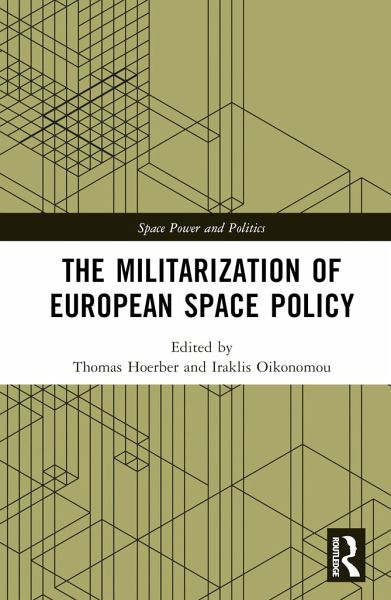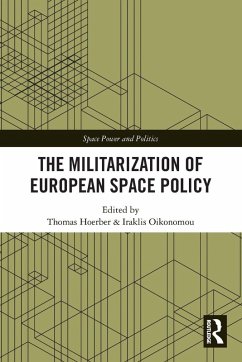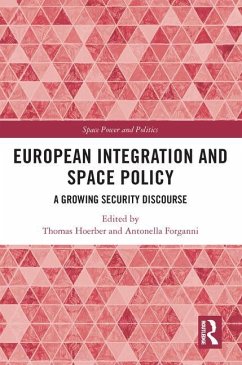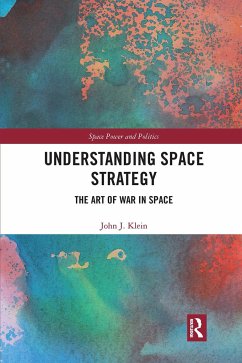
The Militarization of European Space Policy
Versandkostenfrei!
Versandfertig in 6-10 Tagen
154,99 €
inkl. MwSt.

PAYBACK Punkte
77 °P sammeln!
This book is focused on militarization as the nucleus of EU space policy and the interrelatedness of European security, industrial competitiveness, and military capabilities in the shaping of this policy.The EU and key member states have increasingly joined the US, China and Russia, among others, in regarding space assets as critical military, as well as economic, industrial, and technological, enablers. This book tackles this issue by, first, shedding light on the military aspects of EU space policy, with special emphasis on the security and defence dimensions of projects such as Galileo, Cop...
This book is focused on militarization as the nucleus of EU space policy and the interrelatedness of European security, industrial competitiveness, and military capabilities in the shaping of this policy.
The EU and key member states have increasingly joined the US, China and Russia, among others, in regarding space assets as critical military, as well as economic, industrial, and technological, enablers. This book tackles this issue by, first, shedding light on the military aspects of EU space policy, with special emphasis on the security and defence dimensions of projects such as Galileo, Copernicus, Space Situational Awareness, and Satellite Communication. In this context, contributors confront the empirical aspect of developments, including the role of different institutional actors and the involvement of specific member states. Further, the volume analyses the discursive, ideological, normative, and theoretical foundations of the use of space by the EU for strategic purposes, drawing on the broad spectrum of European integration/International Relations theory. Last, but not least, the volume discusses initiatives outside the EU by key global space players, with an emphasis on the US and transatlantic space relations. All chapters maintain a solid empirical foundation, in the form of geographical or issue-related focus, with an area-specific emphasis on the EU as a whole, transatlantic relations, the policies of key member states (such as France and Italy), and core space powers such as the US, China and India.
This book will be of much interest to students of space power, security studies, European politics and International Relations.
The EU and key member states have increasingly joined the US, China and Russia, among others, in regarding space assets as critical military, as well as economic, industrial, and technological, enablers. This book tackles this issue by, first, shedding light on the military aspects of EU space policy, with special emphasis on the security and defence dimensions of projects such as Galileo, Copernicus, Space Situational Awareness, and Satellite Communication. In this context, contributors confront the empirical aspect of developments, including the role of different institutional actors and the involvement of specific member states. Further, the volume analyses the discursive, ideological, normative, and theoretical foundations of the use of space by the EU for strategic purposes, drawing on the broad spectrum of European integration/International Relations theory. Last, but not least, the volume discusses initiatives outside the EU by key global space players, with an emphasis on the US and transatlantic space relations. All chapters maintain a solid empirical foundation, in the form of geographical or issue-related focus, with an area-specific emphasis on the EU as a whole, transatlantic relations, the policies of key member states (such as France and Italy), and core space powers such as the US, China and India.
This book will be of much interest to students of space power, security studies, European politics and International Relations.














